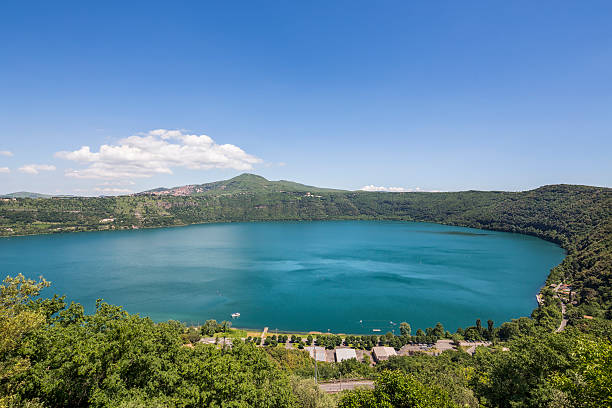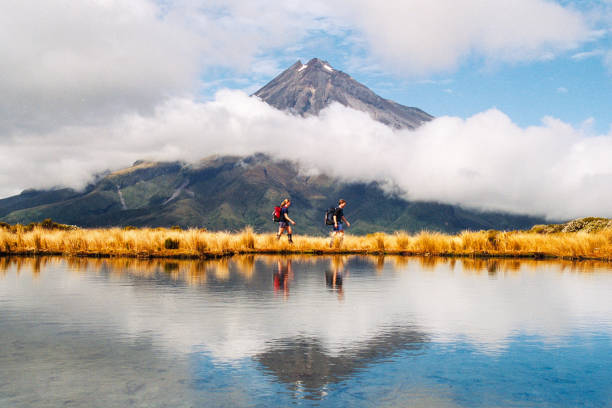Into the Mystique: Exploring the Enchanting World of Volcanic Lakes
Dive into the fiery origins, unique characteristics, and mesmerizing beauty of volcanic lakes around the globe.

Volcanic Lakes: The Enchanting Beauty of Fire and Water Colliding
The captivating combination of fire and water is seen in volcanic lakes, which are created by the might of nature. Situated within craters, calderas, or volcanic landscapes, they provide remarkable vistas, distinct ecosystems, and an insight into Earth's geological past.
Configuration:

These lakes were formed in a number of ways:
- Calderas:
- Following a powerful eruption, a volcano collapses, leaving behind a sizable depression that can fill with water to form a caldera lake. One of the best examples is Crater Lake in Oregon, which is well-known for its vivid blue waters and towering rocks.
Craters: - Ice that has melted or rainwater can collect inside volcanic craters to create crater lakes. Ecuador's breathtaking crater lake, Quilotoa, is renowned for its azure waters and lush surrounds.
Lava Dams: - Lava flows have the ability to obstruct rivers or streams, creating dams that retain water and eventually form lava dam lakes. A notable example is Lake Kivu, which is shared by the Democratic Republic of the Congo and Rwanda.
Special Qualities:
Volcanic lakes differ from other kinds of lakes in a number of distinctive ways, including:
Colors:
A variety of captivating colors, from blue and turquoise to emerald green and even black, may be found in volcanic lakes. These hues are frequently caused by the presence of algae, volcanic gasses, or dissolved minerals. Three crater lakes in Indonesia's Kelimutu have vivid blue, green, and black water because of variations in the amounts of iron and sulfur.
Geothermal Activity:
A few volcanic lakes exhibit geothermal activity, and their natural beauty is enhanced by fumaroles and hot springs. Geothermal activity is well-known at Lake Myvatn, Iceland, where sulfurous vents and bubbling mud pots may be seen all over the place.
Biological Diversity:
Volcanic lakes appear to have harsh environments, but they are capable of supporting a variety of ecosystems. Because of the special circumstances, some microbes flourish and serve as the foundation of the food chain for fish, fowl, and other creatures.
Importance to Culture:
Throughout history, many societies have incorporated and venerated volcanic lakes. They have provided inspiration for religious rituals, creative creations, and myths and tales. Certain volcanic lakes are revered as holy places, and local customs have a strong hold on keeping them that way.
Travelling and Vulcanism:

Because of their natural beauty and geological curiosity, volcanic lakes draw people from all over the world. Numerous provide chances for boating, fishing, hiking, and camping. To reduce the negative effects on the environment and guarantee the preservation of these natural riches, responsible tourism must be given top priority.
Volcanic lakes are not simply beautiful things to see; they are windows into Earth's past that provide important information about geological processes. They are enthralling natural wonders to explore and enjoy because of their distinctive qualities, vivid hues, and varied habitats.
The following are a few of the most well-liked and breathtaking volcanic lakes:
**Lake Kivu, Rwanda/Democratic Republic of the Congo** * **Lake Myvatn, Iceland** * **Laguna Verde, Bolivia** * **Lake Taupo, New Zealand** * **Crater Lake National Park, Oregon, USA** * **Kelimutu, Indonesia** * **Quilotoa, Ecuador**
**Let's investigate these volcanic marvels and enjoy the captivating beauty produced by the meeting of fire and water.**










































































































































































































